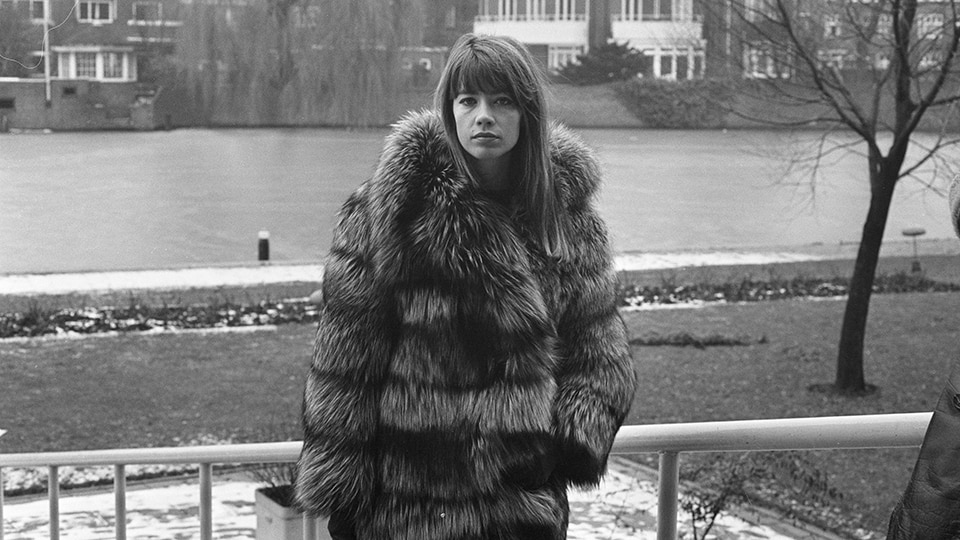Over the span of nearly 60 years, Françoise Hardy's career as a songwriter, actor, and writer spans many evolutions in music, style and culture. Emerging in the French music scene in the early 1960s, Françoise cut her teeth in the yé-yé movement of the 1960s – a name taken from the "yeah yeah yeahs" of British invasion bands and steeped in French teen culture – but she quickly set herself apart by writing her own original music and accompanying herself on the guitar, cutting an independent path more under her own control than her contemporaries.
Most songs of the yé-yé movement were lighthearted accounts of the trials of young love. Françoise's songs from the 1960s, such her breakout hit "Tous les garçons et les filles," helped to galvanize the movement, but they depart subtly from the mainstream. The song's lilting shuffle belies the yearning of the lyrics, Françoise lamenting her loneliness and wondering whether she will find the same kind of love other young people have. Her nonchalant singing, coupled with the stripped-down accompaniment, adds nuance to the lyrics and lends a sense of quiet independence and strength to the song.
Françoise also recorded this song in English, Italian, and German over the course of the 60s.
Conversely, "Tu n'as qu'un mot à dire" off Françoise's second self-titled album (also known as Mon amie la rose) calls out to a departed lover, grief and hope dripping of the skittering string part in equal measure. The solo guitar bends aid the off-kilter feeling, slithering in-between more consonant notes and moving between comfortable and uncomfortable intervals.
Mon amie la rose feels like a departure from her debut, spotlighting a greater use of instruments and more intense performances.
The albums from the 1960s may have established Françoise as a musical force to be reckoned with, but she was not content to be defined by her early success. As the psychedelia became increasingly popular as the decade progressed, Françoise reinvented her sound, inviting Valeniza Zagni da Silva, a Brazilian singer and guitarist performing under the stage name Tuca, to record with her; the result was La question. Although La question features similarly sparse instrumentation to Françoise's earlier albums, it has a decidedly different tone. The opening bass riff on "Viens" has an aggressive urgency to it, underlining a more urgent and unsettled feeling of longing in the lyrics. The sparse instrumentation also leaves space for Françoise's voice to resonate, feeling urgent, exposed, and vulnerable.
Françoise would go on to work on many more albums, films, fashion lines, and writing projects in subsequent years. However, 1972 represents a turning point where Françoise departed decisively from a trend she helped to establish. Her work offers a testament to both invention and re-invention; her voice (both as a singer and a songwriter) shines through many different styles over the span of her career. It's okay to experiment with your sound and try new things; so long as you are genuine, your true voice will still cut through loud and clear.
Margaret Jones is a multi-instrumentalist, songwriter, and music teacher living in Oakland, CA. She plays guitar in several local bands including her own songwriting project M Jones and the Melee. She also holds a Ph.D. in Music History from UC Berkeley and has taught at the San Francisco Conservatory of Music.
"Françoise Hardy in Amsterdam, 16 December 1969" by Joost Evers is in the public domain and licensed under CC0 1.0.
Learn to play these songs and many more. Try Rocksmith+ yourself and take the next step on your musical journey.









